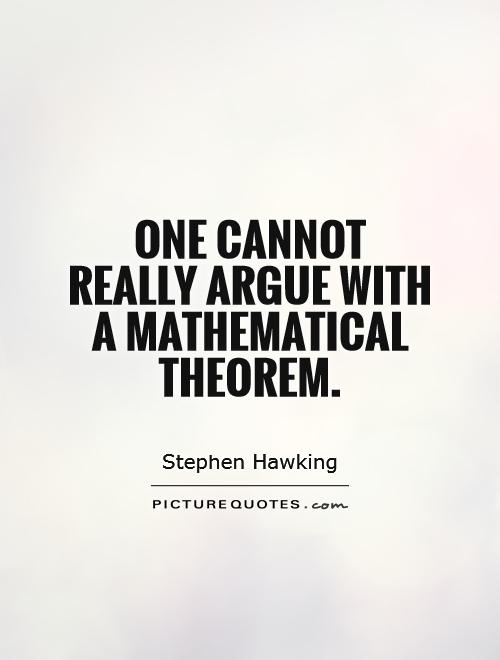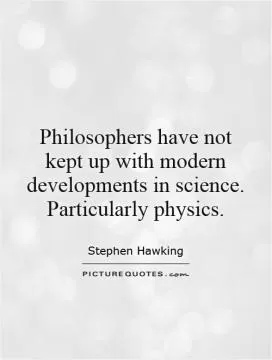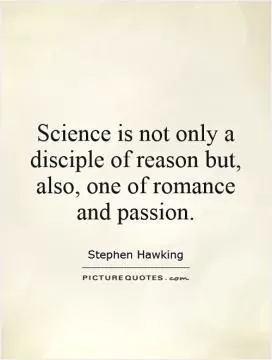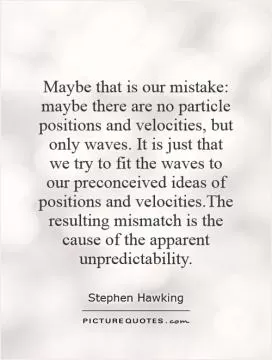One cannot really argue with a mathematical theorem

One cannot really argue with a mathematical theorem
Stephen Hawking, the renowned theoretical physicist and cosmologist, was a firm believer in the power and truth of mathematical theorems. Throughout his career, he often emphasized the importance of mathematics in understanding the universe and developing scientific theories. One of his famous quotes is, "One cannot really argue with a mathematical theorem."Hawking's statement reflects his deep respect for the rigor and precision of mathematical reasoning. In the realm of mathematics, a theorem is a statement that has been proven to be true based on a set of axioms and logical deductions. Once a theorem has been established, it is considered to be irrefutable and universally valid. This is in stark contrast to many other fields of knowledge, where ideas and theories are constantly debated and revised.
For Hawking, the certainty of mathematical theorems provided a solid foundation for his work in theoretical physics. He often used mathematical equations and models to describe the behavior of the universe, from the dynamics of black holes to the expansion of the cosmos. By relying on the language of mathematics, Hawking was able to make precise predictions and testable hypotheses about the nature of reality.
Furthermore, Hawking's statement can also be interpreted as a reflection of his belief in the objectivity of mathematics. Unlike subjective opinions or personal beliefs, mathematical theorems are based on logical reasoning and empirical evidence. They are not influenced by cultural biases or individual perspectives. In this sense, mathematical theorems serve as a universal language that transcends cultural and historical boundaries.












 Friendship Quotes
Friendship Quotes Love Quotes
Love Quotes Life Quotes
Life Quotes Funny Quotes
Funny Quotes Motivational Quotes
Motivational Quotes Inspirational Quotes
Inspirational Quotes